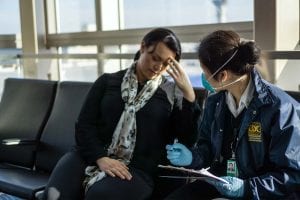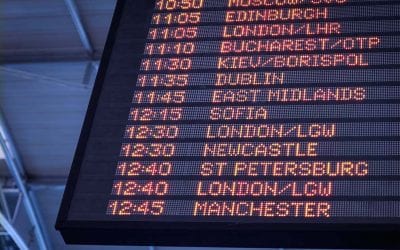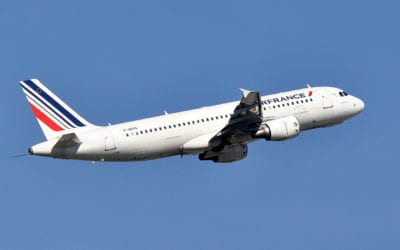Profitable change and cancellation fees cloud the airlines’ duty of passenger care and sick passenger rule

Not any more. Airlines now punish the sick. Sometimes there are change fees and additional airfare in most cases. These airline sick passenger rules are plain wrong. Plus, during the past year, we have discovered how dramatic economic costs can become.
Unfortunately, like many consumer-friendly policies of the past, this policy was abused. I somewhat routinely processed refunds and changes for healthy clients with letters from dentists, psychologists, and dermatologists. Not to mention just friendly general practitioners who were happy to keep THEIR clients happy.
Today, we have to realize that the paltry costs to airlines of passengers purporting to be sick and the actions of dishonest doctors can cause worldwide economic damage.
Doctors’ notes were eliminated by the airline drive to make profits
I’m sure that it wasn’t just the abuse of the policy, but also the airlines’ desire to make more money that basically eliminated the “doctor’s note” rule. Now, if someone dies the airlines generally refund their ticket if a family member sends in a death certificate or obituary. In addition, there is always the option of writing to customer services after the fact. However, in general with U.S. airlines, illness is no longer an excuse to change a trip for free, or to cancel your trip and get a refund,
In fact, the airlines are quite upfront about charging sick passengers to fly. When asked, airlines simply answer the following, “Worried about getting sick? Buy insurance.” During the past three months of pandemic, both passengers and airlines learned the current sick passenger policy has dramatic costs. And, these costs spread far beyond individual passenger airfares. They affect the entire tourism infrastructure, airline stock values, and taxpayer bailouts.
READ ALSO ON TRAVELERS UNITED BLOG:
You have rights when airlines make changes to booked flights
FTC can stop hidden lodging fees. Why won’t it?
Passengers make personal decisions based on economics
While I’ll never name names, like most travel agents I have stories of clients not wanting to lose money, or having the price of a trip be put out of reach, resorting to desperate measures to fly if they can’t change their tickets. Remember, for an individual business traveler, the cost is for one ticket. For families, airline sick-passenger penalties can be quadrupled or more.
One mother, traveling with her husband and two children, told me after the fact she used makeup to cover her child’s spots. Other travelers have told me of heavy-duty doses of cough medicine, Tylenol, or whatever, to get through the flight itself.
Sometimes a potential traveler might not have had obvious symptoms, but they were recovering from a bad cold or flu and inquired if they could just fly a day or two later. Or, they wanted to put off the trip by a month or so. As a travel agent, I’ve always done what I can to help out, and in some cases, airlines have been reasonable. But not always.
For a family of four, domestic change fees alone can be $800. International change fees are $1,200-plus. And, these change fees are on top of any potential substantial fare increase.
Even no-change-fee rules have costs for passengers
Even Southwest, which doesn’t have change fees, will charge the difference between a discount “wanna get away” to full-fare without advance notice or if a sale is no longer in effect. This happens even for a same-day change when space is available. A few years ago I had clients at Disneyland when one of their children started not feeling well and they wanted to fly home early. They faced the possibility of paying over $100 more per ticket for the short flight from northern to southern California. They stuck it out, spending much of the time with their kids waiting at the airport.
Business travelers, who generally aren’t losing their own money, have been in general more likely just to cancel trips. They are willing to pay whatever it costs to change. But even so, sometimes a big enough change fee will influence flyers. I’ve had people decide they’ll just “suck it up” and fly rather than wait a day until they feel better.
Even before COVID-19, there were some case-by-case exceptions. Sometimes it is about finding the right person to waive a rule. I also realize that airlines need to charge change fees in general. These penalties protect their complex fare rules. Otherwise, many travelers would just book discount tickets and then travel whenever they wanted. So, there’ll need to be a system in place to ward off abuse.
COVID-19 is a multi-trillion-dollar call to change sick passenger rules
After the effects of this pandemic, the rules must change. The final plea from consumers to the House Transportation and Infrastructure Committee and the Senate Commerce Committee included the need for changes in the sick passenger rules. Even Congress did not anticipate the effects on the greater economy, the overall corporate stakeholders, or the stock market.
Most Americans, when they start traveling again, will no longer have to consider just spending more. Now, they will have to think of other people’s health. And, airlines need to consider the dramatic financial disaster that they have faced with this pandemic. The basic responsibility should fall on the airlines. Carriers can far more easily self-insure.
Airlines have a far larger duty of care
How air carriers deal with their sick passengers may result in a tiny increase in profits. However, the disaster faced by the economy is enormous. By basically forcing the sick to fly, airline policies create trillion-dollar costs to the economy. Travel and tourism stop. And, airline stockholders lose billions in value.
Janice Hough is a California-based travel agent a travel blogger and a part-time comedy writer. A frequent flier herself, she’s been doing battle with airlines, hotels, and other travel companies for over three decades. Besides writing for Travelers United, Janice has a humor blog at Leftcoastsportsbabe.com (Warning, the political and sports humor therein does not represent the views of anyone but herself.)



